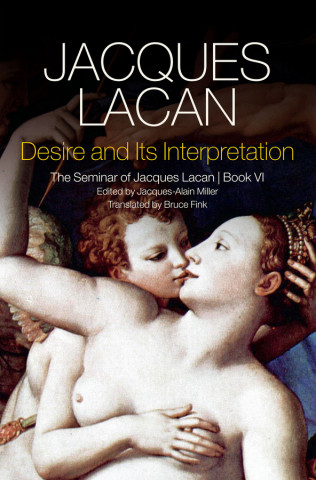
Kód: 33187334
Desire and its Interpretation - The Seminar of Jacques Lacan, Book VI
Autor J Lacan
What does Lacan show us? He shows us that desire is not a biological function; that it is not correlated with a natural object; and that its object is fantasized. Because of this, desire is extravagant. It cannot be grasped by tho ... celý popis
- Jazyk:
 Angličtina
Angličtina - Väzba: Brožovaná
- Počet strán: 464
Nakladateľ: Polity Press, 2021
- Viac informácií o knihe

25.93 €
Bežne: 26.74 €
Ušetríte 0.81 €

Skladom u dodávateľa
Odosielame za 3 - 5 dní
Mohlo by sa vám tiež páčiť
-

The Balkans, 1804-2012
21.61 € -23 % -

Daring to Be Bad
27.74 € -10 % -
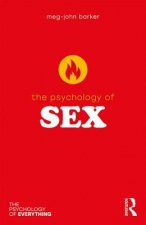
Psychology of Sex
17.69 € -

Cruel Optimism
28.15 € -2 % -
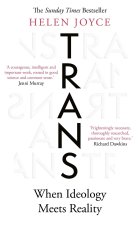
Trans
11.45 € -19 % -

Different Drum
12.06 € -22 % -

My Husband
14.07 € -20 % -
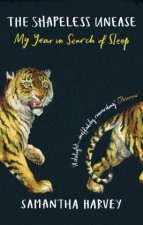
Shapeless Unease
11.35 € -22 % -

I Fear My Pain Interests You
11.35 € -14 % -

Women Who Run with the Wolves
9.95 € -16 % -

I'm a Fan
10.85 € -18 % -
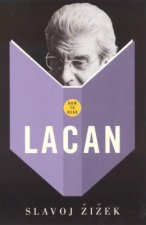
How To Read Lacan
12.06 € -22 % -

Wires and Nerve: The Graphic Novel Duology Boxed Set
38.70 € -

Be The Lion
21.01 € -

The Han Dynasty: The History and Legacy of Ancient China's Most Influential Empire
13.62 € -

Eminence in Shadow, Vol. 1 (light novel)
21.31 € -5 % -

Facing New York
39.21 € -6 % -

Copywriter's Handbook, The (4th Edition)
17.69 € -11 % -

Half Baked Harvest Super Simple
26.03 € -15 % -

Embers
9.44 € -20 % -

Lies My Doctor Told Me
30.96 € -15 % -

White Hot Kiss
10.65 € -12 % -

Ascendance of a Bookworm: Part 1 Volume 1
13.56 € -15 % -

Danganronpa Another Episode: Ultra Despair Girls Volume 1
15.17 € -23 % -
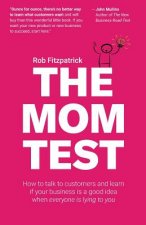
Mom Test
24.02 € -

Parable of the Talents
10.65 € -20 % -

Murder at the Abbey
16.18 € -

I, Jedi: Star Wars Legends
15.17 € -15 % -

The Exchange: After the Firm
32.57 € -

Kaiju No. 8, Vol. 6
9.44 € -15 % -

JavaScript
41.22 € -31 % -
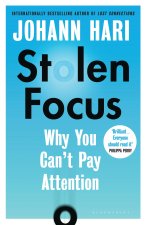
Stolen Focus
12.06 € -22 % -

The Inheritance Games Collection
56.60 € -

Wanderlust Himalaya
41.12 € -7 % -

Zodiac Academy 4
33.68 € -5 % -

Unshakable Inner Peace Oracle Cards
22.92 € -

Marilyn Manson By Perou
58.31 € -16 % -

Doctor Who: The Ninth Doctor Adventures - Ravagers
32.47 € -13 % -

Beginner's Guide To Procreate: Characters
31.77 € -15 % -

Hands Down
20.81 € -

Daughter of Smoke & Bone: The Complete Gift Set
44.64 € -2 % -

Oh Cook!
22.31 € -6 % -

You Don't Know JS Yet
29.86 € -

Star Wars: The Lightsaber Collection
29.55 € -5 % -

Blue Period 2
12.16 € -13 % -

Notebook
10.65 € -20 % -

The Magicians Trilogy Boxed Set
45.84 € -15 % -

The Drama of the Gifted Child
15.27 € -14 % -

Faggots
16.08 € -14 % -

Napoleon the Great
19.10 € -20 % -

Translation, Humour and Literature
70.10 € -
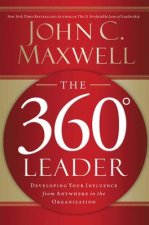
360 Degree Leader
16.28 € -23 % -

Book of Yokai
35.18 € -
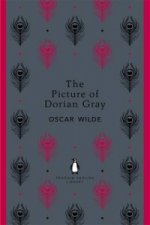
The Picture of Dorian Gray
8.74 € -19 % -

Waterloo 1815
22.72 € -5 % -

Black-winged Love
14.97 € -2 % -

Calligrapher's Bible
22.51 € -19 % -

Age Of Revolution
16.28 € -23 % -

The Silence Of The Lambs
10.65 € -20 % -

Elantris
11.45 € -19 % -

Moleskine Extra Large Dotted Notebook Hard
26.13 € -13 % -

Hunter x Hunter, Vol. 30
7.73 € -11 % -
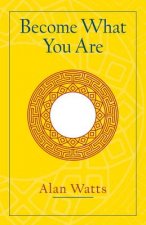
Become What You Are
14.37 € -15 % -

Communication Skills For Dummies
14.87 € -29 % -

Reinventing Management Revised and Updated Edition - Smarter Choices for Getting Work Done
30.16 € -15 % -

New Headway Pre-Intermediate Student's Book
56.40 € -

Gravity Falls Once Upon a Swine
6.53 € -23 % -

Leaders Eat Last
26.13 € -19 % -

Stormdancer
16.88 € -15 % -

Alien: The Blueprints
29.96 € -19 % -

Beauty of Horror 3: Haunted Playgrounds Coloring Book
17.29 € -23 % -

Into the Drowning Deep
12.06 € -22 % -

Shatter Me
22.62 € -

Santa Muerte Tarot Deck: Book of the Dead
26.24 € -5 % -

Celestial One Line a Day
14.17 € -13 % -

Bizenghast: The Collector's Edition Volume 3 manga
20.10 € -

Tormented Master
37.90 € -

Hacking Growth
16.38 € -14 % -

Pianistka
10.75 € -11 % -

Nuevo Espanol en marcha basico A1+A2 Podrecznik + CD
38.80 € -
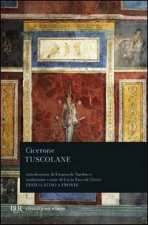
Tuscolane
13.87 € -

AzubiShop24.de Basis-Lernkarten Anlagenmechaniker /in
27.04 € -

Borax: Borax Für Anfänger, Geheimes Basisches Pulver ALS Heilmittel, Wundermittel Gegen Arthrose, Osteoporose, Candida, Viren
6.93 € -19 % -

Der Herr der Ringe
49.06 €
Darčekový poukaz: Radosť zaručená
- Darujte poukaz v ľubovoľnej hodnote, a my sa postaráme o zvyšok.
- Poukaz sa vzťahuje na všetky produkty v našej ponuke.
- Elektronický poukaz si vytlačíte z e-mailu a môžete ho ihneď darovať.
- Platnosť poukazu je 12 mesiacov od dátumu vystavenia.
Viac informácií o knihe Desire and its Interpretation - The Seminar of Jacques Lacan, Book VI
Nákupom získate 65 bodov
 Anotácia knihy
Anotácia knihy
What does Lacan show us? He shows us that desire is not a biological function; that it is not correlated with a natural object; and that its object is fantasized. Because of this, desire is extravagant. It cannot be grasped by those who might try to master it. It plays tricks on them. Yet if it is not recognized, it produces symptoms. In psychoanalysis, the goal is to interpret--that is, to read--the message regarding desire that is harbored within the symptom.Although desire upsets us, it also inspires us to invent artifices that can serve us as a compass. An animal species has a single natural compass. Human beings, on the other hand, have multiple compasses: signifying montages and discourses. They tell you what to do: how to think, how to enjoy, and how to reproduce. Yet each person's fantasy remains irreducible to shared ideals.Up until recently, all of our compasses, no matter how varied, pointed in the same direction: toward the Father. We considered the patriarch to be an anthropological invariant. His decline accelerated owing to increasing equality, the growth of capitalism, and the ever-greater domination of technology. We have reached the end of the Father Age.Another discourse is in the process of taking the former's place. It champions innovation over tradition; networks over hierarchies; the draw of the future over the weight of the past; femininity over virility. Where there had previously been a fixed order, transformational flows constantly push back any and all limits.Freud was a product of the Father Age. He did a great deal to save it. The Catholic Church finally realized this. Lacan followed the way paved by Freud, but it led him to posit that the father is a symptom. He demonstrates that here using Hamlet as an example.What people have latched onto about Lacan's work--his formalization of the Oedipus complex and his emphasis on the Name-of-the-Father--was merely his point of departure. Seminar VI already revises this: the Oedipus complex is not the only solution to desire, it is merely a normalized form thereof; it is, moreover, a pathogenic form; it does not exhaustively explain desire's course. Hence the eulogy of perversion with which this seminar ends: Lacan views perversion here as a rebellion against the identifications that assure the maintenance of social routines.This Seminar predicted "the revamping of formally established conformisms and even their explosion." We have reached that point. Lacan is talking about us.
 Parametre knihy
Parametre knihy
Zaradenie knihy Knihy po anglicky Society & social sciences Sociology & anthropology
25.93 €
- Celý názov: Desire and its Interpretation - The Seminar of Jacques Lacan, Book VI
- Autor: J Lacan
- Jazyk:
 Angličtina
Angličtina - Väzba: Brožovaná
- Počet strán: 464
- EAN: 9781509500284
- ISBN: 1509500286
- ID: 33187334
- Nakladateľ: Polity Press
- Hmotnosť: 826 g
- Rozmery: 153 × 227 × 43 mm
- Dátum vydania: 15. January 2021
Obľúbené z iného súdka
-

Beneath the Moon
16.18 € -18 % -
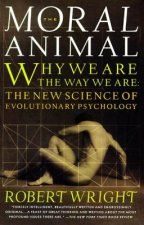
Moral Animal
17.99 € -9 % -

You Can't Be Neutral on a Moving Train
16.08 € -14 % -

Ice Age Hunters of the Rockies
35.49 € -

Grounds for Difference
42.32 € -

Keep the River on Your Right
14.47 € -

Toward a Feminist Theory of the State
48.36 € -
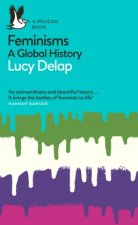
Feminisms
12.06 € -22 % -
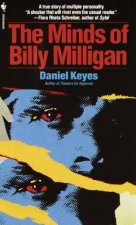
Minds of Billy Milligan
8.94 € -14 % -
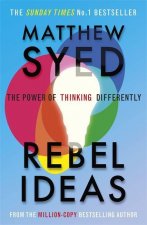
Rebel Ideas
11.45 € -19 % -

Craving Mind
17.49 € -14 % -

Thinking Skills Coursebook
61.23 € -
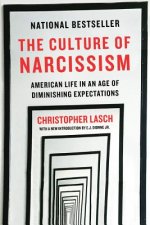
Culture of Narcissism
16.28 € -13 % -

Accursed Share, Volume I
21.81 € -15 % -

Sonic Agency
35.69 € -12 % -
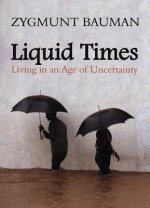
Liquid Times - Living in an Age of Uncertainty
13.87 € -3 % -
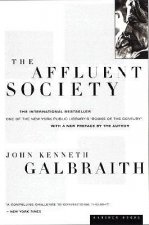
The Affluent Society
16.98 € -

Dancing Bears
15.98 € -13 % -
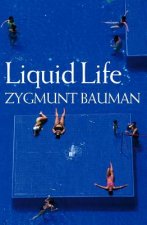
Liquid Life
27.44 € -

Practice of Social Research
89.69 € -5 % -

We Are Everywhere
34.28 € -15 % -

Ideological Origins of the American Revolution
26.64 € -3 % -

Prey
24.43 € -13 % -

Race After Technology - Abolitionist Tools for the New Jim Code
16.28 € -23 % -
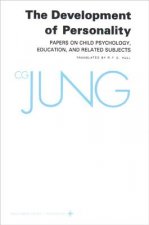
Collected Works of C.G. Jung, Volume 17: Development of Personality
32.57 € -

Forms of Capital - General Sociology, Volume 3
44.94 € -

Revolution of Everyday Life
18.39 € -

Protestant Ethic and the Spirit of Capitalism by Max Weber
50.47 € -
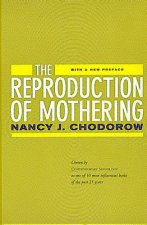
Reproduction of Mothering
38 € -

Street Woman
46.65 € -

White Fragility
14.57 € -
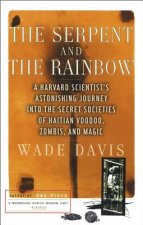
Serpent and the Rainbow
18.19 € -4 % -

Nurtureshock
18.39 € -23 % -

Disposable People
40.31 € -

Mothers and Others
28.05 € -12 % -

Drugs without the hot air
20.10 € -5 % -

PlayStation Dreamworld
24.02 € -
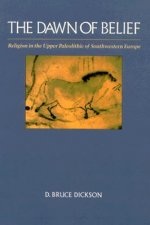
Dawn of Belief
37.90 € -

Journey into the Whirlwind
16.88 € -15 % -

Europe and the People Without History
42.63 € -

Ritual Process
55.80 € -
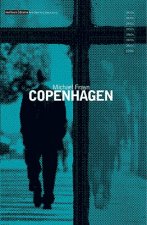
Copenhagen
14.87 € -5 % -

Soul Hunters
42.63 € -

Sociology for AQA Volume 1 - AS and 1st-year A Level
29.96 € -2 % -

Sociology for AQA Volume 2 - 2nd-Year A Level
31.26 € -3 % -

Distinction
52.68 € -
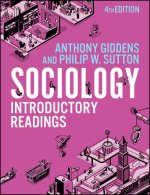
Sociology - Introductory Readings 4th Edition
26.03 € -
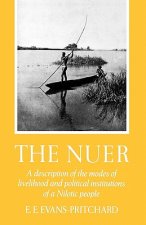
Nuer
97.43 € -
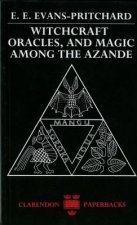
Witchcraft, Oracles and Magic among the Azande
97.43 €
Osobný odber Bratislava a 2642 dalších
Copyright ©2008-24 najlacnejsie-knihy.sk Všetky práva vyhradenéSúkromieCookies


 21 miliónov titulov
21 miliónov titulov Vrátenie do mesiaca
Vrátenie do mesiaca 02/210 210 99 (8-15.30h)
02/210 210 99 (8-15.30h)